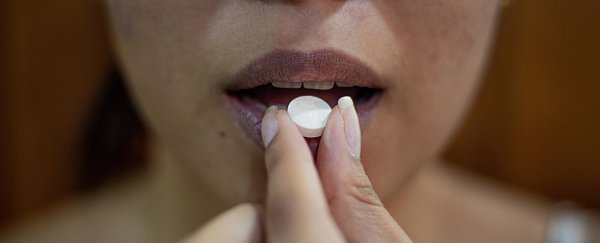When we take medicine, there are often unintended consequences. In the most common scenarios, these are known as side effects.
But 'side effects' don't begin to encompass the multitude of strange things that can happen when various compounds enter our system.
Sometimes, these unintended consequences occur after drugs physically exit the body, with medicine finding a second life in animals accidentally exposed to the formulations downstream.
Yet even before drugs have a chance to leave your body, they most likely will also interact with organisms other than just you, such as the gut microbiome.
In a new study, scientists found that numerous species of bacteria that live in the human gut can interact with and accumulate a number of different types of medicines taken by people, including antidepressants, pain relief, heart medication, and more.
"This calls for us to start treating the microbiome as one of our organs," says one of the study authors, bioinformatician Peer Bork from the European Molecular Biology Laboratory (EMBL) in Germany.
Scientists already knew that bacteria in the human microbiome had the ability to chemically modify drugs that they come into contact with inside the body – a phenomenon called biotransformation.
But the new research shows that biotransformation isn't the whole side of the story.
Experiments in the lab with over 20 species of human gut bacteria exposed to 15 different kinds of human-targeted drugs showed that, most of the time, bacteria ended up unexpectedly accumulating the chemicals without actually modifying them.
"It was surprising that the majority of the new interactions we saw between bacteria and drugs were the drugs accumulating in the bacteria," says Kiran Patil, director of research at the MRC Toxicology Unit at the University of Cambridge.
"Until now, biotransformation was thought to be the main way that bacteria affect the availability of drugs to the body."
The distinction could be important. According to the researchers, bioaccumulated drugs show the potential not only to alter bacterial behavior and metabolic processes, but to affect the distribution and balance of bacterial populations.
In other words, therapeutic drugs don't just affect you – they're likely having unknown effects on the gut microbiome and its overall composition, if these experimental results are indeed replicated in actual human patients, which isn't yet known.
From the sounds of it, though, every individual gut's mileage will vary.
"These will likely be very personal differences between individuals, depending on the composition of their gut microbiota," Patil says. "We saw differences even between different strains of the same species of bacteria."
Aside from the issue of what medication might be doing to bacteria, however, there's also something else to consider.
The researchers say the medications people take might be rendered less effective by bacterial hijacking of their chemical ingredients.
After all, when we measure dosage, we haven't exactly been accounting for the hangers-on: a microbial entourage who ends up accumulating a certain amount of what we swallow.
In addition to potentially reducing the effectiveness of some medications, it's possible the same phenomenon could also introduce or affect side effects in patients, the researchers say, with drug regimens being slightly altered by invisible hands.
A lot more research will be needed to understand just how significant this bacterial accumulation issue really is, and there's no time like the present.
"The next steps for us will be to to take forward this basic molecular research and investigate how an individual's gut bacteria tie with the differing individual responses to drugs such as antidepressants – differences in whether you respond, the drug dose needed, and side effects like weight gain," Patil says.
"If we can characterize how people respond depending on the composition of their microbiome, then drug treatments could be individualized."
Until such time, don't forget to bring enough for everyone.
The findings are reported in Nature.
